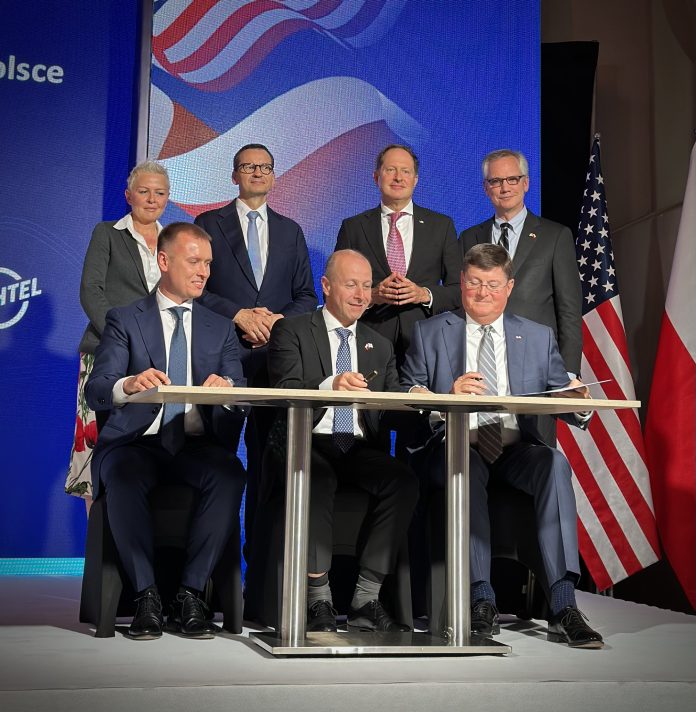Polish and U.S. officials have signed an agreement in Warsaw to build Poland’s first nuclear power plant. The move marks efforts by the Central European nation to ease its reliance on fossil fuels and to tackle the rise in polluting emissions.
The plant will be sited in the Pomerania region near the Baltic Sea, flagging a new chapter for the nation, Poland’s Prime Minister Mateusz Morawiecki declared.
“The only clean, stable energy source that is technologically proven and verified in terms of safety is nuclear energy,” he said at the signing ceremony.
A consortium consisting of Westinghouse and Bechtel signed the pact with Polskie Elektrownie Jądrowe (PEJ), the Polish state-owned utility overseeing the nuclear programme. The planned site at Lubiatowo-Kopalino is about 280 kilometres (175 miles) from the German border.
Germany closed down its last remaining nuclear reactors in April. Just last year, the four German states located closest to Poland declared themselves opposed to the Polish plan.
Many environmentalists are set against nuclear energy. Some in Poland maintain that the initial cost is too high and the development process too lengthy. They argue that investing in renewable energies is the more sensible option. Despite such misgivings, opposition to the project in Poland has been relatively mild. The Greens party is itself divided on the issue.
With some of the worst air pollution in Europe, Poland has been considering nuclear power plants as an alternative to its aging coal-fired plants for decades. This took on added urgency when Russia’s invasion of Ukraine saw Moscow using energy supplies as a means of putting economic and political pressure on European nations.
Poland now plans to spend $40 billion on two nuclear power plants, each with three reactors. The last is expected to be launched in 2043. The Washington deal, which covers the first three reactors of the Pomerania plant, should start producing electricity in 2033. Warsaw has also signed agreements with South Korea for a second nuclear power plant.

